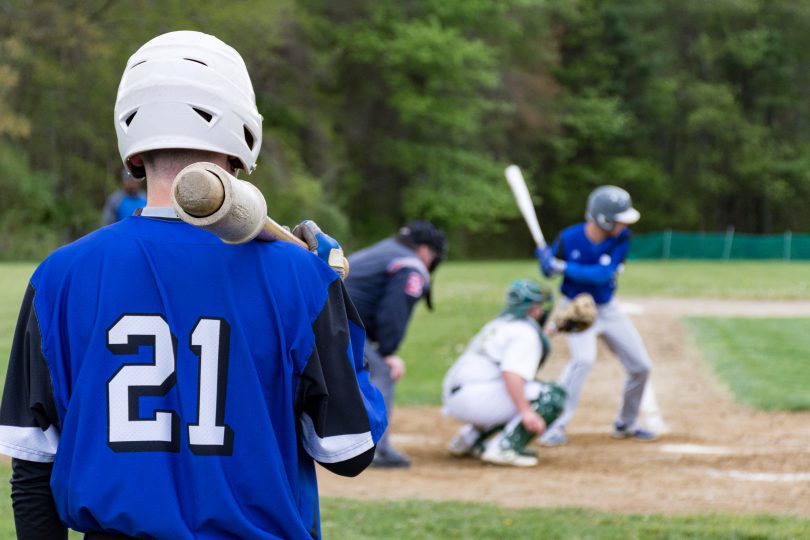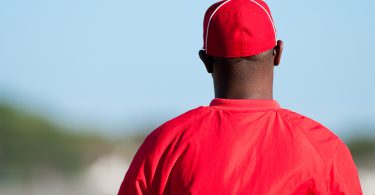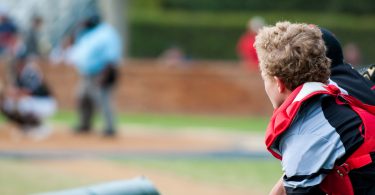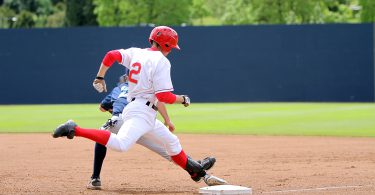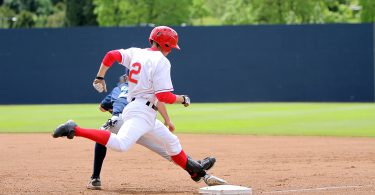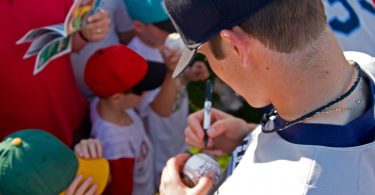Want to listen to this article in podcast format? Just click play below!
“You have to apply yourself each day to becoming a little better. By applying yourself to the task of becoming a little better each and every day over a period of time, you will become a lot better.”– Coach John Wooden
Want to play college baseball? There are people around you every day that can help you get there. The people we are thinking about are probably not the same people that immediately jump into your mind. We’re not talking about your coaches or your parents or even your teachers and counselors, although all of these people can be a tremendous help in the recruiting process. The people we are talking about are your teammates and your peers.
Your peers can play an incredible role in helping you understand what it takes to get better if you can take your ego out of the comparison. That can be easier said than done. Most high school players fall into the trap of letting their ego interfere when comparing themselves to their peers. Who has the better stats? Who is getting more attention from colleges? Who got invited to this event or plays on this team? Why is he getting recruited by that school and I’m not? Why is he already getting offers? These types of comparisons only serve as a distraction. Every college bound player is on a different timeline and follows a different path to the next level. When we talk about the role your teammates and fellow competitors can play in helping you get better, we are talking about learning from their successes and failures as much as your own.
There’s a common misconception that learning has to come from your own success or mistakes, but imagine how many more learning opportunities you create each day when you really pay attention to what is happening around you. That’s the entire point of our Think the Game articles. Learn from everyone’s experiences, so you don’t have to make every mistake for yourself! There is feedback and important lessons all around you that can help you grow and improve and we want to highlight how you can use this feedback to be your own coach and get a little better each day. Here are the 4 keys:
Learn from the best
What makes the best players on the field better than everyone else? What skills do they have? How do these skills differ from yours and what could you do to close that gap? How do they go about their business? Is the difference in their routine? What is the difference between what they are doing and what everyone else is doing? Imitation is the highest form of flattery and if you pay close enough attention, you’ll pick up on patterns and habits that you can use for yourself. Take that one step further and ask questions. How do you throw your slider? What are you thinking about? How do you grip the ball? These observations and inquiries don’t have to be limited to the baseball field either. Watch the best students in your classes, the people with the closest relationships with friends, or the best at other types of performances. What are they doing that separate themselves from the rest and what can you learn from that and apply to your own life? Figure it out and do it!
Learn from the worst
Do the same thing suggested for the best players (or students, friends, etc.) with those who struggle the most. What are they doing that is different? Where are their weaknesses? Look at and understand the patterns that are leading to their troubles and make sure you learn from them and don’t repeat them. Better yet, once you recognize the patterns that are leading to their failures, help them change their behavior and get better!
Recognize cause and effect relationships
Most things don’t just happen by chance. The best players don’t just get lucky more than everyone else. They are doing certain things that are leading to their success. For example, if you look at the player who arrives at practice 1st most consistently, you will probably find that they are a big part of the team’s success. If you look at the players who throw the hardest, you will likely find that they are putting themselves in the best positions and have the most efficient movement patters. By paying close attention to what goes on around you, you will notice that there are very specific reasons for success and failure. Find the cause of the result, and you will know where to focus your attention and efforts. The more you can understand these cause and effect relationships, the easier it will be for your success to depend on effort and persistence!
Build a database of experiences to draw upon
With talent being equal, who would you rather have on your team during a playoff run? A team full of playoff veterans or a team full of rookies? Of course you would take a team full of players who have been there before! That’s because experience is incredibly important to mastery of skill and success. By being present and aware of everyone’s experience around you, you will build up a larger database of experiences that you can draw from in the future to create successful outcomes. For example, say you made 7 errors last season. That’s 7 learning experiences that you can draw from in the future. But let’s say your team made 50 errors last season collectively. If you are paying close attention to all of them, you now have more than seven times the experiences to learn from and draw on moving forward.
Being present and aware of what is going on around you at a high level will require a lot of effort at first. However, once you have formed the habit you will be well on your way to building a skill that is essential to success at the college level—the ability to learn on your own and coach yourself! As Coach Wooden alludes in the quote above, this is about applying yourself each day and making a commitment to learning and improving a little bit each day. If you are able to do this, eventually you will look up and find that you have improved a huge amount and you are now one of the top players that others are looking at to learn from.

